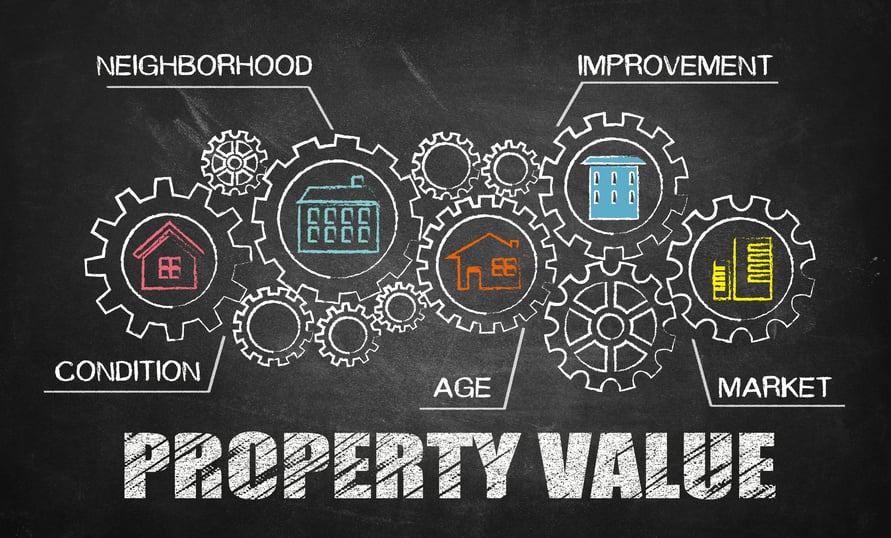2020 has been a tough year for property owners and managers. The pandemic has eviscerated commercial rentals with bars, restaurants, and stores forced to close to slow the spread of the virus.

The year has also been tough on the residential sector. Yes, eviction moratoriums were also necessary as millions lost their jobs. But little has been done to help landlords and property management companies – most of which are small businesses, themselves.
Add to this the fact that state, local, and federal guidelines and regulations have often been conflicting and unevenly enforced. This has made it hard for service providers in the sector to do their jobs.
For example, what work is considered “essential”? Is it only to bring in contractors to prepare a unit to be released back into the market? How to handle leases when many would-be tenants might not have the funds available to make payments? The answers to these questions depend on the economic and public health situation where you are located.
Ardent Residential, a property management company in Atlanta, noted that “providing professional, effective, and cost-efficient management services in the age of COVID has been a challenge.” But this does not mean that effective property management is impossible. With that in mind, here are some property managers are adjusting to the “new normal.”
Having a Plan Helps
Managing risk is a vital element of property management; however, many were caught entirely off-guard by the arrival of the pandemic and its impact on their businesses. According to risk managers, while the fallout from the pandemic is not precisely a black swan event, it is close to it, especially as few property managers had prepared for a prolonged shutdown of their normal business activities.
However, many managers have recovered from the early days of the pandemic with work-at-home plans for their teams, better coordination with service providers, and automating tenant support. Doing so has made their businesses more resilient, and then the lesson is that having a plan helps.
Communication is Key
In the good old days, property managers did not have to develop a communication strategy. As the saying goes, that was then, and this is now. In the post-COVID world, property managers need to have a communication plan. It will make it easier to inform tenants of how the situation impacts their ability to provide services.
This could include updating tenants on changes in guidance from local health officials, how the implementation and enforcement of mask mandates (if applied) in common areas, and how the situation impacts the ability of service providers to do their jobs.
In an age of heightened uncertainty, communication is critical and the best property managers are making sure that having a solid communications plan in place will make their job more manageable going forward.
Adopt a Safety-First Mindset
While no property manager wants their properties viewed as hazardous work areas, there is a need to ramp up safety measures during a global pandemic. This not only includes cleaning and sanitizing common areas, but also screening visitors. While the virus has spread to almost every corner of the country, even rural areas, it is essential to remain vigilant as an outbreak at one of your properties could make your job even harder in the long run.
Review Your Maintenance Plan
That most COVID has delayed most capital investments as developers and property managers are seeking to preserve cash in a time of uncertainty. However, normal wear and tear mean that maintenance must go on.
One shift, especially when outbreaks flare-up, is that an increasing number of managers prioritize which repairs get done first. Doing so not only helps to reduce costs, but it will also limit the number of visitors coming to their properties. This helps to shift resources to emergency calls, which have in residential developments as tenants are spending more time than usual at home.
However, some repairs might be mandated by local authorities. As such, a maintenance plan must consider the local requirements and guidelines from public health officials. This is a balancing act, given the challenges 2020 presents, it is crucial to prioritize.
Automate Processes
In the past lease renewals and visits were done in person. However, this might not be feasible in the current environment. As such, leading property management groups are taking many of these processes online.
Not only does this reduce contacts (which is important in the age of social distancing), it also moves toward automating processes. The latter will help to reduce operating costs, and this improvement in operational efficiency will help to offset revenue pressures as tenants struggle to pay their monthly rentals.
2020 is a challenging year, but property managers are adapting to the challenges. In doing so, they are protecting themselves and their clients and their tenants from everything this year has thrown at them.